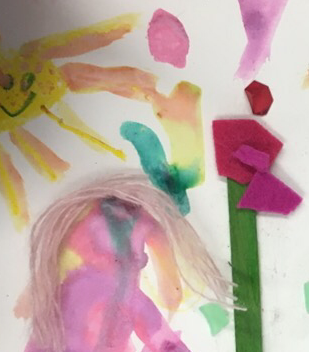Beautiful Language, Reggio Inspirations
- beinspire-ed

- Jan 7, 2018
- 2 min read
In the Spring of 2013...
smack in the middle of student teaching, an opportunity presented itself to be part of an educational study tour in Italy. A few weeks later, I attended The U.S. Students and Professors Reggio Emilia Study Tour. The conference took place in Reggio Emilia, a city in Northern Italy that is full of educational history dating back to post-World War II when a group of women started a small school. Loris Malaguzzi was the founder of the Reggio Emilia philosophy. You can read more about his work and inspirations here: http://www.reggiochildren.it/identita/loris-malaguzzi/?lang=en.
One of my take-aways...
from this trip was the use of language by all pedagogistas, atelieristas, teachers, and other educators. I began to document a list of these beautiful words, which has inspired me to think of language used with children as Beautiful Language.
Beautiful Language list from the Study Tour:

Now...
in my position as a public school Kindergarten teacher, I am using a Reggio-inspired curriculum, Boston Public Schools: Focus on K2. A crucial component of Focus on K2 is vocabulary, which takes me back to my list of Beautiful Language. As teachers and adults, we must talk to children as we would speak to other adults, with competency. Through constant exposure, their vocabulary will grow and so will their understanding of language.
Connections & Inspirations between Reggio and Focus on K2
Children are natural born researchers. Through center exploration, children are able to find answers to their own questions and beyond.
The teacher is a listener, evaluator, researcher.
Documentation is a memory. Documenting children's learning (conversations, interactions with peers, science investigations, etc.) through pictures, videos, or words will bring learning back to life for children to reflect on what they did, share it with others, and think of next steps.
Literacy is embedded.
sketching and planning a block structure
referencing read-alouds
writing a menu in the play kitchen area
recording science findings
accessing environmental print
labeling
writing about art work
Create a classroom, or even better a school-wide, culture of feedback. Feedback is kind, specific, and helpful.
In an open-ended environment, everyone is successful.

I inspire you to share and spread the wonder.
xo MARIA






















Comments